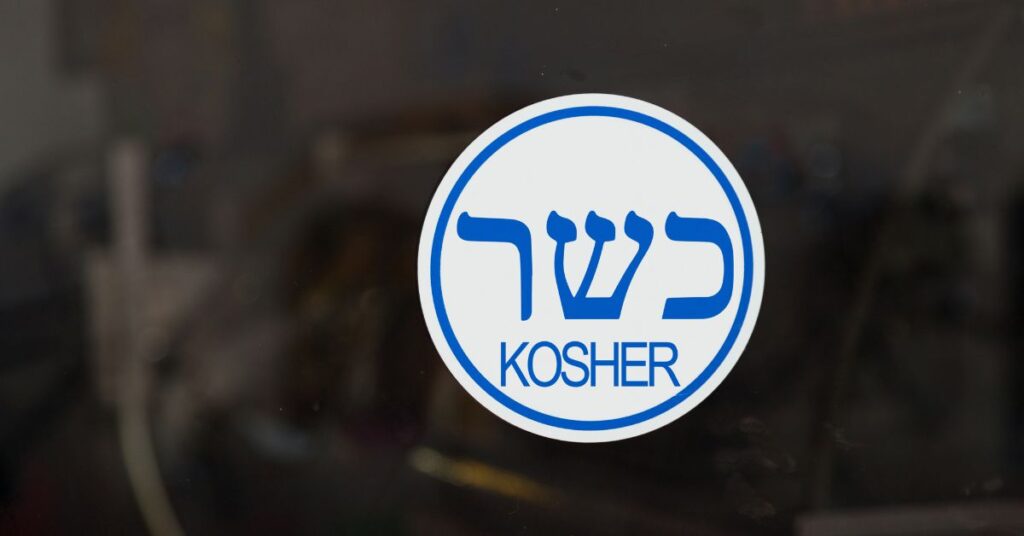Kosher foods are those that comply with the strict dietary standards of kashrut, Jewish dietary laws. These laws determine which foods are suitable for consumption by observant Jews and cover everything from food preparation to the types of foods that can be consumed. The demand for Kosher products in Canada has grown, not only within the Jewish community but also among other consumers who value the quality, food safety, and ethical considerations that Kosher certification often represents. This article delves into what it means for food to be Kosher, the significance of Kosher symbols, and the role of Kosher certification in Canada’s diverse food market.

Understanding What is Kosher
The term “Kosher” refers to foods that meet the requirements set forth in Jewish law. These laws are complex and cover a wide array of food items and production processes. Generally, Kosher foods are divided into three categories: meat, dairy, and pareve (neither meat nor dairy). Each category has strict rules regarding how the food must be prepared, processed, and consumed. For example, meat must come from certain species of animals that are slaughtered in a specific way, and dairy products cannot be mixed with meat.
The Kosher Certification Process
Gaining Kosher certification involves a detailed inspection and ongoing monitoring by a Kosher certification agency. These agencies employ experts in Jewish dietary law to inspect food processing facilities and ensure that they comply with Kosher standards. The process includes examining the sources of all ingredients, the production equipment, and the procedures for food preparation. Once a product is deemed Kosher, it can display a Kosher symbol, which serves as a guarantee to consumers that the product meets all Kosher requirements.
The Importance of the Kosher Symbol
The Kosher symbol is a key element in Kosher food identification. This symbol, found on product packaging, assures consumers that the product has been certified by a recognized Kosher certification agency. There are numerous Kosher symbols worldwide, depending on the certifying agency. In Canada, products that carry a Kosher symbol are widely trusted by consumers looking for Kosher foods, as these symbols represent adherence to some of the most stringent dietary supervision.
Kosher in Canada
The landscape of Kosher in Canada is reflective of the country’s multicultural makeup. With a significant Jewish population, along with many others who choose Kosher for health or ethical reasons, the market for Kosher foods is substantial. Canadian food producers who achieve Kosher certification often see expanded market access, both domestically and internationally, where there is a demand for certified Kosher products.
Role of Kosher Certification Agencies in Canada
Kosher certification agencies in Canada play a crucial role in the certification process. These agencies provide the necessary expertise and oversight to ensure that products labeled as Kosher meet all religious and safety standards. They also help manufacturers understand and implement the necessary changes to their production processes to comply with Kosher laws. This can include modifying ingredients, equipment, and handling procedures.
Challenges and Benefits of Kosher Certification
While obtaining Kosher certification can be challenging due to the strictness of Kosher laws, the benefits are considerable. For businesses, Kosher certification can open up new market opportunities and increase consumer trust. For consumers, Kosher-certified products offer assurances of quality, safety, and adherence to dietary laws or personal eating principles.
Consumer Trends Driving Kosher Certification Growth
Consumer demand for transparency and ethical production practices has contributed to the growth of the Kosher market in Canada. Many consumers perceive Kosher-certified products as being of higher quality and safety. Furthermore, the ethical aspects of Kosher slaughter and food processing resonate with non-Jewish consumers who prioritize animal welfare and environmentally friendly practices.
The Future of Kosher Certification
Looking forward, the future of Kosher certification in Canada appears robust. As more consumers from diverse backgrounds choose Kosher products, manufacturers are likely to continue seeing the value in obtaining Kosher certification. This trend is supported by the increasing globalization of food markets, where Kosher certification can serve as a key to international market access.
Conclusion
Kosher certification represents a commitment to quality, safety, and adherence to dietary laws that is recognized not only within the Jewish community but also increasingly by the general public. In Canada, where diversity and multiculturalism are celebrated, Kosher food and its certification play a significant role in the food industry, providing opportunities for growth and ensuring consumer trust in Kosher-labeled products. As the demand for such products continues to rise, the role of Kosher agencies in upholding standards and supporting producers is more important than ever, ensuring that Kosher remains a symbol of trust and quality in the Canadian food market.